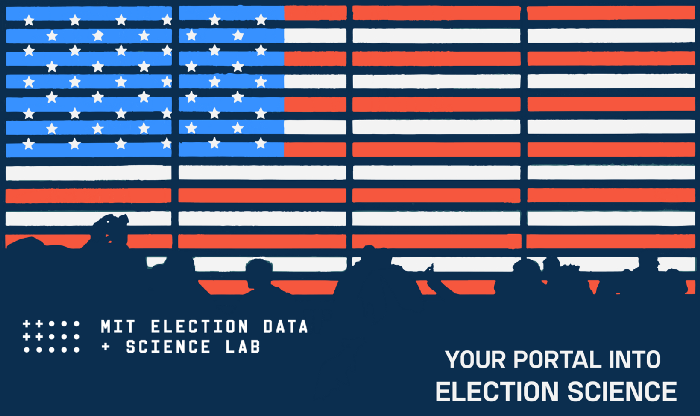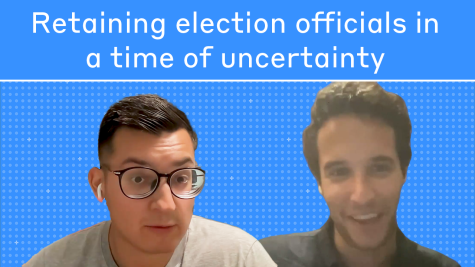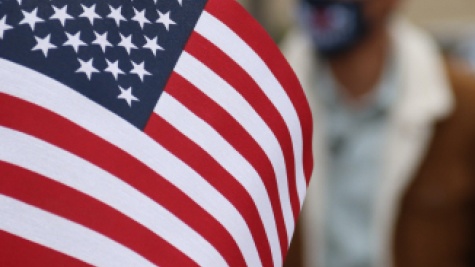Welcome to the Lab
When in the course of organizational events it becomes necessary for one team to launch a new website…
If you’ve been reading our publication here on Medium, or follow us on Twitter, you probably already know who we are — but indulge us for a moment, and allow us to re-introduce ourselves.
We’re the MIT Election Data & Science Lab, and we are dedicated to supporting advances in election science. We collect, analyze, and share data on U.S. elections, and work with election officials and scholars to apply new scientific research to the practice of democracy in the United States.
If you visited us on the world wide web before this spring, you’ll know that we started out with a very simple page that asserted our existence and our goals, and not much else. Although the Lab has been at work for more than a year, we knew we needed to set up a foundation for our launch pad before we blasted off, so to speak. In a year, we’ve found that: we’ve grown from one person to a team of staff, accompanied by a number of graduate and undergraduate researchers, and we now count the support and knowledge of a network of practitioner and academic experts. We’re preparing some really exciting work that we’ll launch later this year — including an update to the Elections Performance Index that was previously produced by the Pew Charitable Trusts.
As we developed, we knew that the shingle we hung out in the online world would need to tell passersby exactly who we were. In March, we set a new website quietly loose on the world, without much fanfare, while we tested some of the features and got feedback from experts and users. If you’ve gone to look at our data or some of the other research we’ve posted, you’ve likely already seen it — but today we are very proud to formally announce it, and we encourage you to take some time to explore it if you haven’t already.
Ultimately, part of our mission is to ensure that information and research about elections and election administration is accessible to researchers, decision-makers, and folks who are just interested in how elections work in the United States.
What’s next ?
We’ll continue to shape the content on our website to reflect our mission, and add to the growing field of election science. One of our top priorities is to identify and collect datasets that help fuel research — the data we collect and post to our site will stay there, free for use for scholars focused on U.S. elections. We’ll also continue linking to other resources and relevant open data sources, including our partners at OpenElections, and will keep adding the tools we develop that make working with election data easier, like our R-package on GitHub.
At the same time that we’re diving into the data side of things, we think it’s important to demystify important concepts in election science, and to highlight new research. That means ensuring our website has a place that anyone can browse to find in-depth, rigorous reports from national or local experts or our own staff (like this new report measuring voting lines, which we worked on with the Bipartisan Policy Center), as well as straightforward, nonpartisan guides to key issues that matter to voters and policymakers.
We hope you’ll join the conversation on elections, whether you’re an academic, a local election official, or you simply care about using scientific methods to improve the ways elections work. We’ll be working to showcase the accomplishments of folks engaged in research or practice around the country, and we hope you’ll follow along.
On that note: we’re excited to announce the launch of a quarterly newsletter! Our newsletter will bring you nonpartisan news and updates from the field of election science — we’ll showcase our research, the achievements of the experts in our network, and innovative ideas about elections and election management.
Sign up here to receive the newsletter and hear directly from us as we continue our work:



